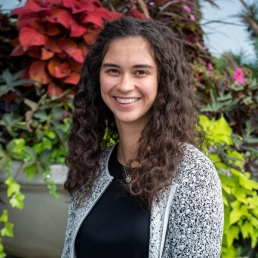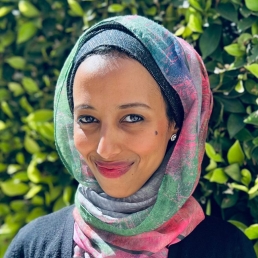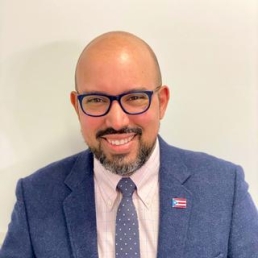Robert Wood Johnson Foundation (RWJF) ACME Matching Service
Robert Wood Johnson Foundation (RWJF) initiated Health Equity Scholars for Action (HES4A) to promote the academic advancement of early career faculty members from historically underrepresented backgrounds. HES4A aims to support scholars in overcoming structural and institutional barriers to attain career success and ultimately to secure tenure-track appointments.
Based in Johns Hopkins Bloomberg School of Public Health, the ACME team matches scholars with accomplished mentors who understand the lived experience and current challenges of junior faculty. The ACME team connects scholars with both technical mentors, who offer methodological support to scholars, and career coaches, who serve as guides for scholars’ general career development. This two-pronged approach strengthens their support systems by equipping them with mentors with concordant life experiences, overlapping research interests, and similar professional paths.
Scholars

Gabriel Miller
Gabriel Miller is an Assistant Professor in the Department of Sociology at the University of Alabama at Birmingham (UAB). His research focuses on the intersection of health, inequality, and social networks, particularly how social factors influence health outcomes and disparities. Miller has published extensively on these topics, contributing to a deeper understanding of the social determinants of health. He is involved in several interdisciplinary projects and teaches courses related to medical sociology and quantitative research methods.

Lillian Polanco-Roman
Lillian Polanco-Roman is an Assistant Professor of Psychology at The New School for Social Research. Her work centers on the mental health of underserved and minority populations, with a focus on cultural and contextual factors influencing psychological outcomes. She is particularly interested in the impact of identity, discrimination, and trauma on mental health. Dr. Polanco-Roman is committed to bridging research with clinical practice to better serve diverse communities.

Zoe Smith
Zoe Smith is an Associate Professor of Psychology at Loyola University Chicago. Her research focuses on the intersection of culture, mental health, and coping mechanisms, with a particular interest in how cultural factors influence the psychological well-being of diverse populations. Dr. Smith's work often explores issues related to identity, stress, and resilience in minority communities. She is also actively involved in mentoring students and contributing to the academic community through her teaching and research.

Ifrah Magan
Ifrah Magan is a Clinical Assistant Professor at NYU Silver School of Social Work. Her research focuses on the mental health and well-being of immigrant and refugee populations, particularly in the context of trauma and resilience. Dr. Magan's work aims to improve mental health services for these communities through culturally informed practices. She is also dedicated to teaching and mentoring students in the field of social work.

Natalie Cook
Natalie Cook is an Assistant Professor of Anatomic Pathology at the Virginia-Maryland College of Veterinary Medicine, Virginia Tech. Her expertise includes pathology in various species, and she is actively involved in teaching, research, and service within the field of veterinary pathology. Dr. Cook is committed to advancing the understanding of animal diseases through her research and contributes to the education of future veterinarians.

Sasha Zhou
Sasha Zhou is an Assistant Professor in the Department of Public Health at Wayne State University. Her research focuses on mental health disparities, particularly among young adults and minority populations. She investigates how social determinants, including race, socioeconomic status, and immigration, impact mental health outcomes. Dr. Zhou is dedicated to understanding and addressing mental health inequities through her research and community engagement.

Khalilah Johnson
Dr. Khalilah Johnson is an Assistant Professor at UNC Chapel Hill, specializing in health disparities among marginalized communities, particularly adults with intellectual and developmental disabilities. Her research uses a community-engaged approach to promote health equity and inform inclusive policies in occupational therapy.

Shantrel Canidate
Shantrel Canidate, PhD, is an Assistant Professor in the Department of Epidemiology at the University of Florida. Her research focuses on the intersections of infectious diseases, substance use, and health disparities, particularly among vulnerable populations. Dr. Canidate is committed to advancing public health through her work, aiming to reduce health inequities and improve health outcomes in marginalized communities.

Danielle Crookes
Danielle Crookes, PhD, is an Assistant Professor at Northeastern University in the College of Social Sciences and Humanities. Her research centers on the social determinants of health, with a particular focus on immigrant health disparities and the impact of migration on health outcomes. Dr. Crookes aims to improve health equity through her work by examining how social, economic, and environmental factors influence the well-being of immigrant communities.

Kia Davis
Kia Davis, ScD, MPH, is an Assistant Professor in the Department of Surgery at Washington University in St. Louis. Her research focuses on health disparities, particularly the social determinants of health and how they contribute to cancer outcomes. Dr. Davis is dedicated to improving health equity through her research, education, and community engagement, with the goal of reducing disparities in cancer prevention, treatment, and survivorship.

Kristin Black
Kristin Black, PhD, MPH, is an Assistant Professor in the Department of Health Behavior at the University of North Carolina at Chapel Hill. Her research focuses on health equity, particularly in reproductive health, chronic disease prevention, and maternal and child health. Dr. Black is committed to addressing health disparities through her research, which explores the intersection of race, gender, and health outcomes, with a focus on improving health for marginalized communities.

Ellesse-Roselee Lubikamba Akre
Ellesse-Roselee Lubikamba Akre, PhD, MPH, is an Assistant Scientist at the Johns Hopkins Bloomberg School of Public Health. Her research focuses on the social and structural determinants of health, particularly in marginalized communities. She is dedicated to understanding how systemic inequities impact health outcomes and aims to inform public health interventions that promote equity and justice.

Andrew Anderson
Andrew Anderson, PhD, is an Assistant Professor at the Johns Hopkins Bloomberg School of Public Health. His research explores the intersections of public health, policy, and health economics, with a focus on evaluating the impact of healthcare policies on health outcomes. Dr. Anderson is particularly interested in addressing health disparities and improving access to care through evidence-based policy interventions.

José Pérez-Ramos
José Pérez-Ramos, PhD, is an Assistant Professor of Public Health Sciences at the University of Rochester Medical Center. His research focuses on health disparities, particularly in chronic diseases such as diabetes, and the impact of social determinants on health outcomes in underserved populations. Dr. Pérez-Ramos is committed to improving public health through community-based research and interventions that address systemic inequities in healthcare.
